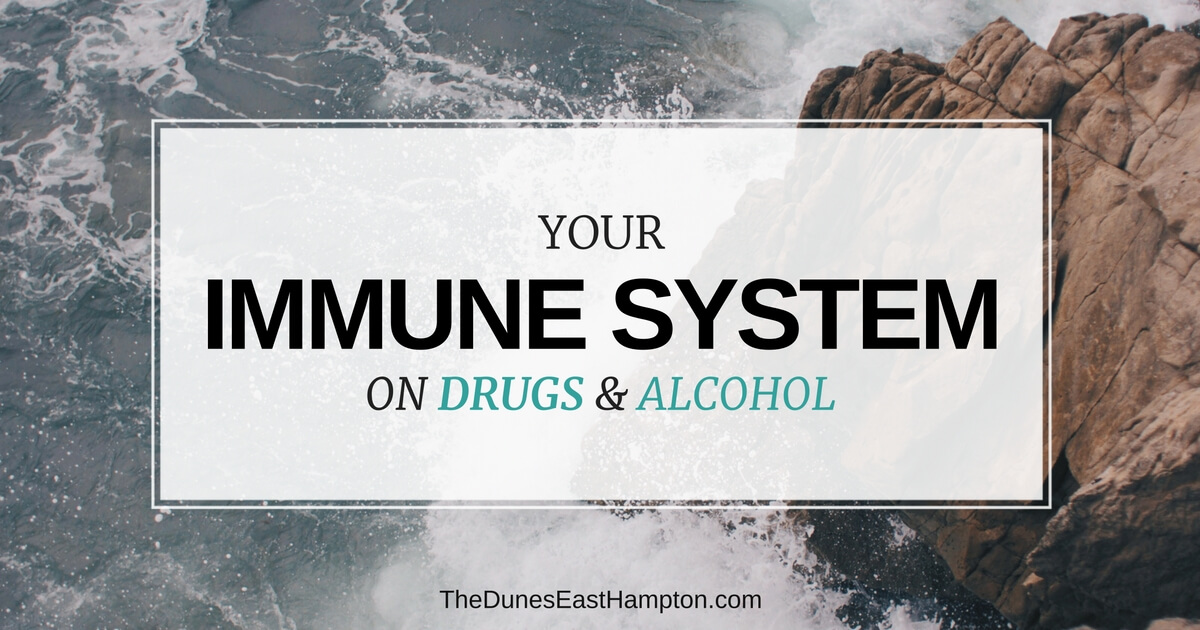 Does alcohol weaken your immune system? Drug and alcohol abuse negatively affects the body, particularly its immune system. Such abuse can destroy a weak immune system, leaving the body vulnerable to disease. This is a dangerous situation for people already suffering from a weakened immune system.
Does alcohol weaken your immune system? Drug and alcohol abuse negatively affects the body, particularly its immune system. Such abuse can destroy a weak immune system, leaving the body vulnerable to disease. This is a dangerous situation for people already suffering from a weakened immune system.
Common complications of drug and alcohol abuse have an autoimmune component whereby the body attacks its own healthy tissues. The relationship between drugs, alcohol and a weak immune system is a complex one.
Alcohol And Prevalence Of Autoimmunity
Medical professionals and addiction treatment specialists theorize that long-term alcohol abuse can lead to autoimmunity. Cirrhosis and alcoholic hepatitis are two disastrous complications of alcohol abuse.
- Cirrhosis: A scarring of the liver commonly caused by chronic alcohol abuse (as well as Hepatitis B and C). Complications include poor blood flow, leg swelling, spleen enlargement, bleeding, difficulty fighting infections, hepatic encephalopathy (loss of brain function), and multi-organ failure.
- Alcoholic Hepatitis: Acute inflammation and cell death of the liver. Evidence suggests that cell death is caused not only by the presence of alcohol, but the residual effects,since inflammation continues after the withdrawal period. Chronic alcoholic hepatitis is generally more severe and occurs at lower levels of alcohol consumption, suggesting that alcoholics can develop a measure of immunity to their own liver.
Drugs, Alcohol And Immunodeficiency
Drug and alcohol abuse can lead to a weakened immune system. Evidence suggests that drug and alcohol abusers are more likely to die from preventable diseases such as:
- Pneumonia: Patients who die of bacterial pneumonia are more likely to be alcohol abusers.
- Tuberculosis: Once an extremely contagious and prevalent respiratory disease, over one-third of tuberculosis sufferers are alcoholics.
- HIV: Drug and alcohol abusers have a higher risk of contracting this disease due to sharing dirty needles and engaging in risky sexual practices.
- Hepatitis B and C: Needle-sharing and risky behaviors put drug users at a higher risk for Hepatitis B and C. Alcoholics are slightly more likely to develop Hepatitis C, after controlling for other variables, when compared to non-alcoholics.
Mechanisms Of Action: How Do Drugs And Alcohol Affect A Weak Immune System?
Does alcohol weaken immune system? Scientists are still examining the pathophysiology of the immune system and its relationship to drug and alcohol abuse. Yet, these researchers are confident that drugs and alcohol have a cell-mediated effect on a weak immune system.
For example, lymphocyte counts in alcoholics suffering from acute hepatitis and cirrhosis are low compared to non-alcoholics. Lymphocytes are the body’s natural disease fighters: white blood cells produced in bone marrow, lymph nodes and the spleen that recognize foreign bodies (antigens) and stimulate an appropriate response. Lymphocytes also ensure that the immune system doesn’t overreact to invaders.
People with depressed lymphocytes may underreact (immunodeficiency) or overreact (autoimmunity), depending on the kinds of lymphocytes affected.
What Are The Repercussions Of Drug And Alcohol Abuse?
Drugs and alcohol specifically lower the body’s lymphocyte counts, thereby increasing susceptibility to infection and disease:
- Alcohol specifically inhibits the production of natural killer (NK) cells, a type of lymphocyte that destroys viral and cancer cells.
- Marijuana damages sensitive lung tissues, increasing susceptibility to bacterial and viral infections.
- Cocaine impairs the efficacy of IL-6, a protein responsible for the body’s chain of immune reactions needed to fight off infectious diseases. For this reason, cocaine users are more likely to have infectious diseases, from the common cold to HIV.
Implications For Alcohol And Drug Treatment
Drug and alcohol abuse has pervasive effects on the immune system, making it more likely for abusers to die from preventable or treatable infections. There is research to suggest, however, that immunotherapies might be efficacious in treating drug abuse.
Substance abuse treatment and drug substitution programs, like methadone maintenance, are generally successful. Some critics argue the programs are expensive and don’t provide a realistic long term drug rehab solution.
Others think that target immune therapies to the brain merits further research. For instance, a National Institute on Drug Abuse study shows promise in treating opioid and methamphetamine addiction by communicating with the brain’s specialized immune cells.
The relationship between the brain, the immune system, and drugs and alcohol is a complicated one still under research. Understanding this relationship is not only necessary for accurately treating abusers who have infections, but also for creating therapies to curb drug and alcohol abuse. Current research shows promise for both addiction rehabilitation and addiction treatment programs.







